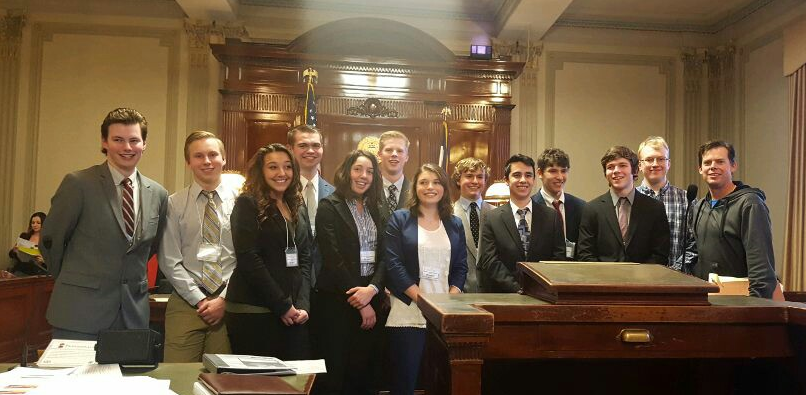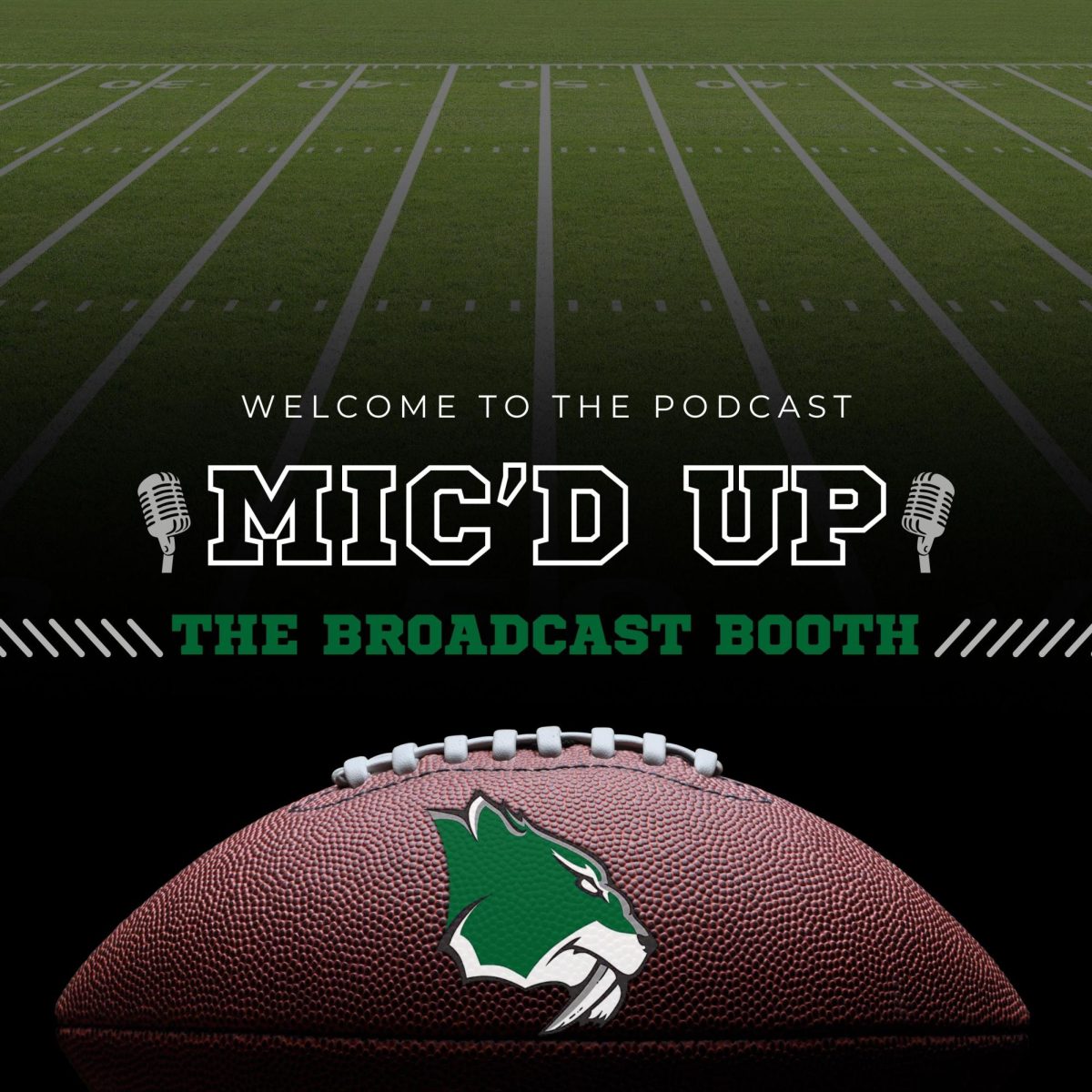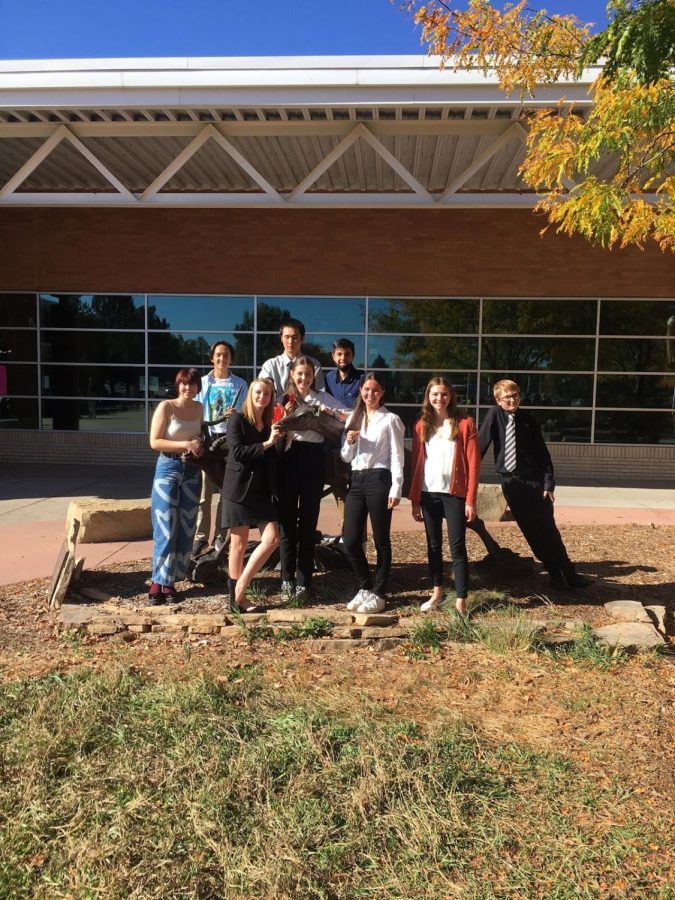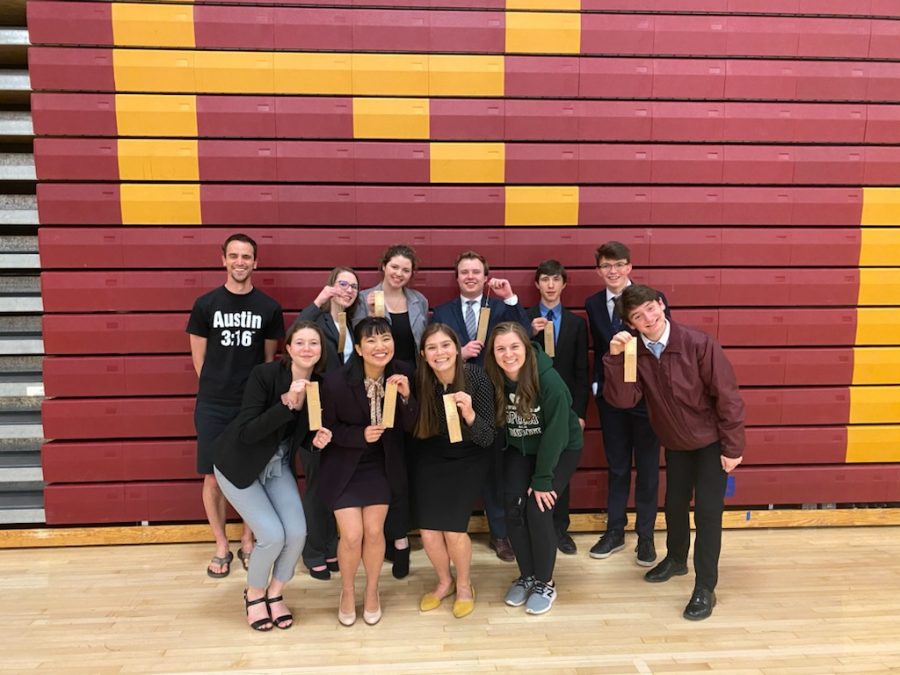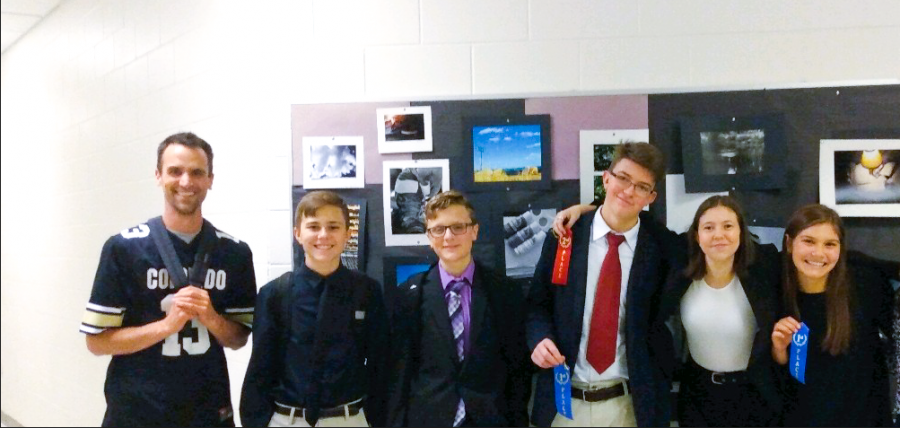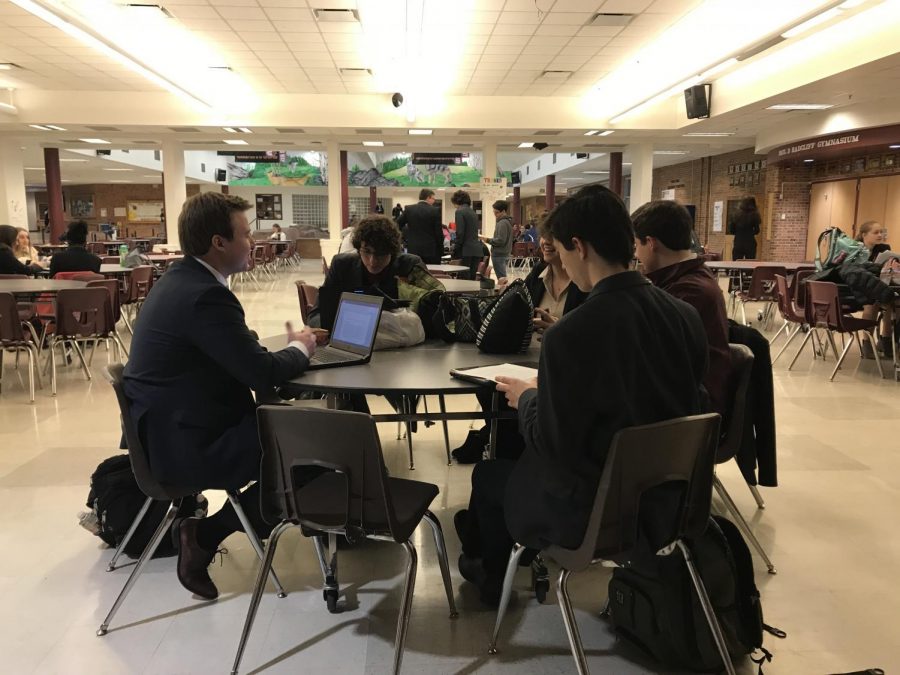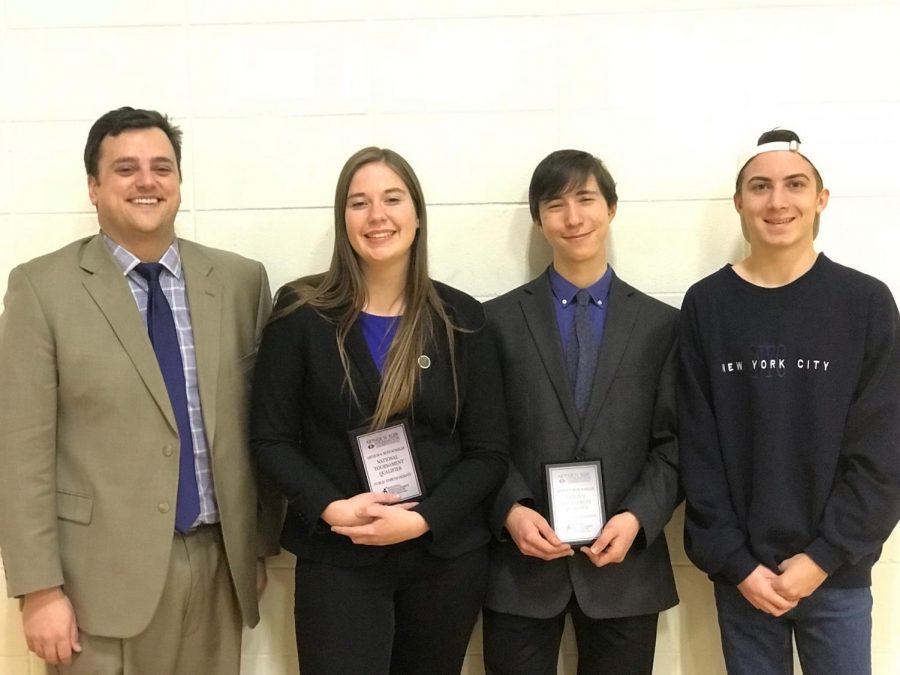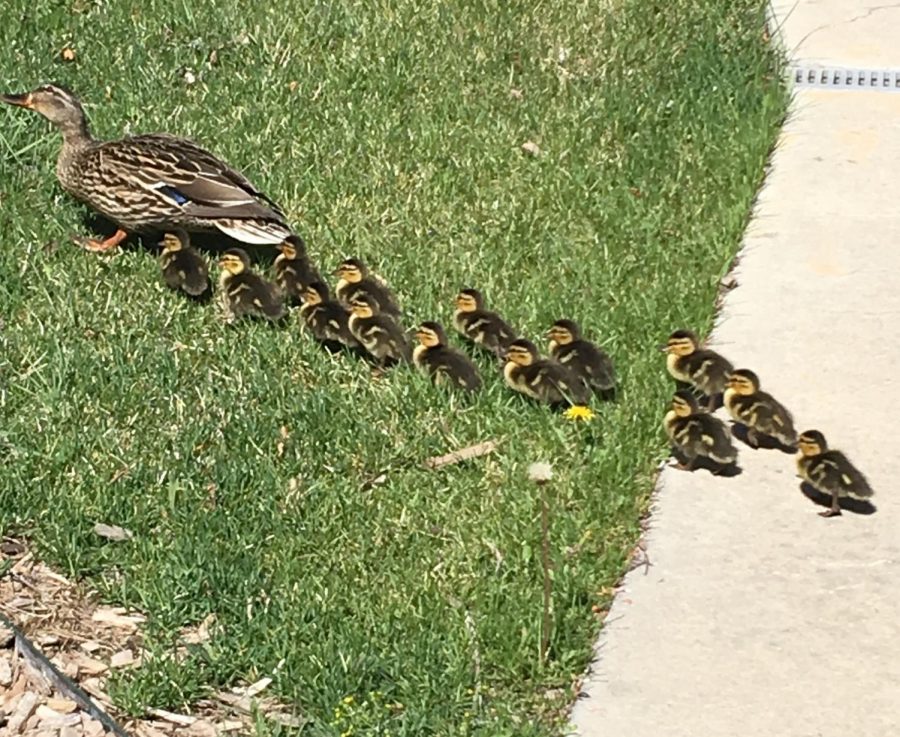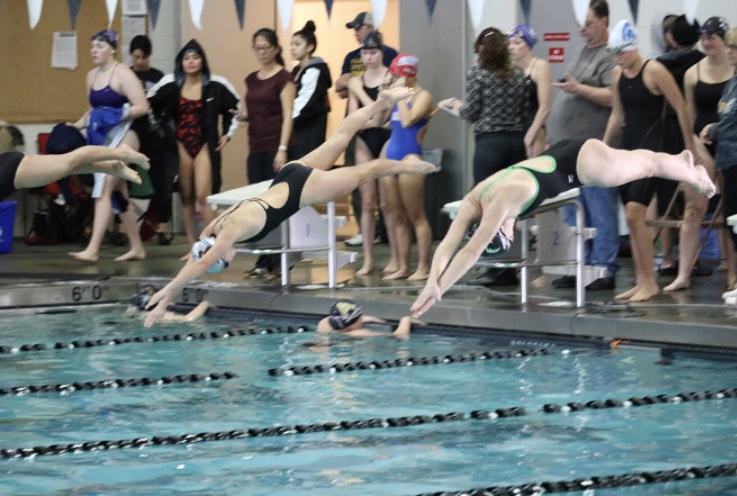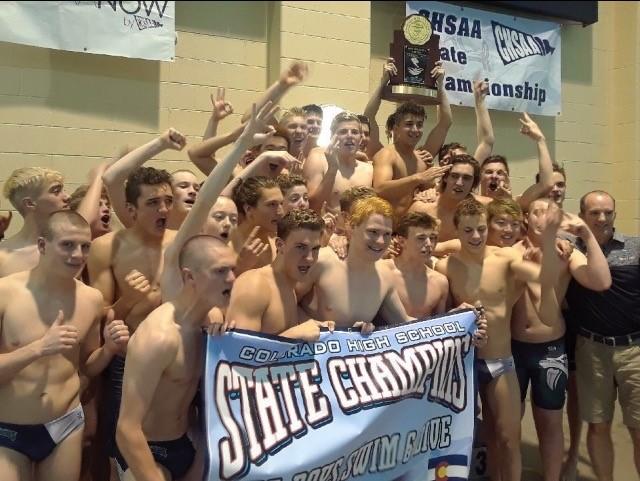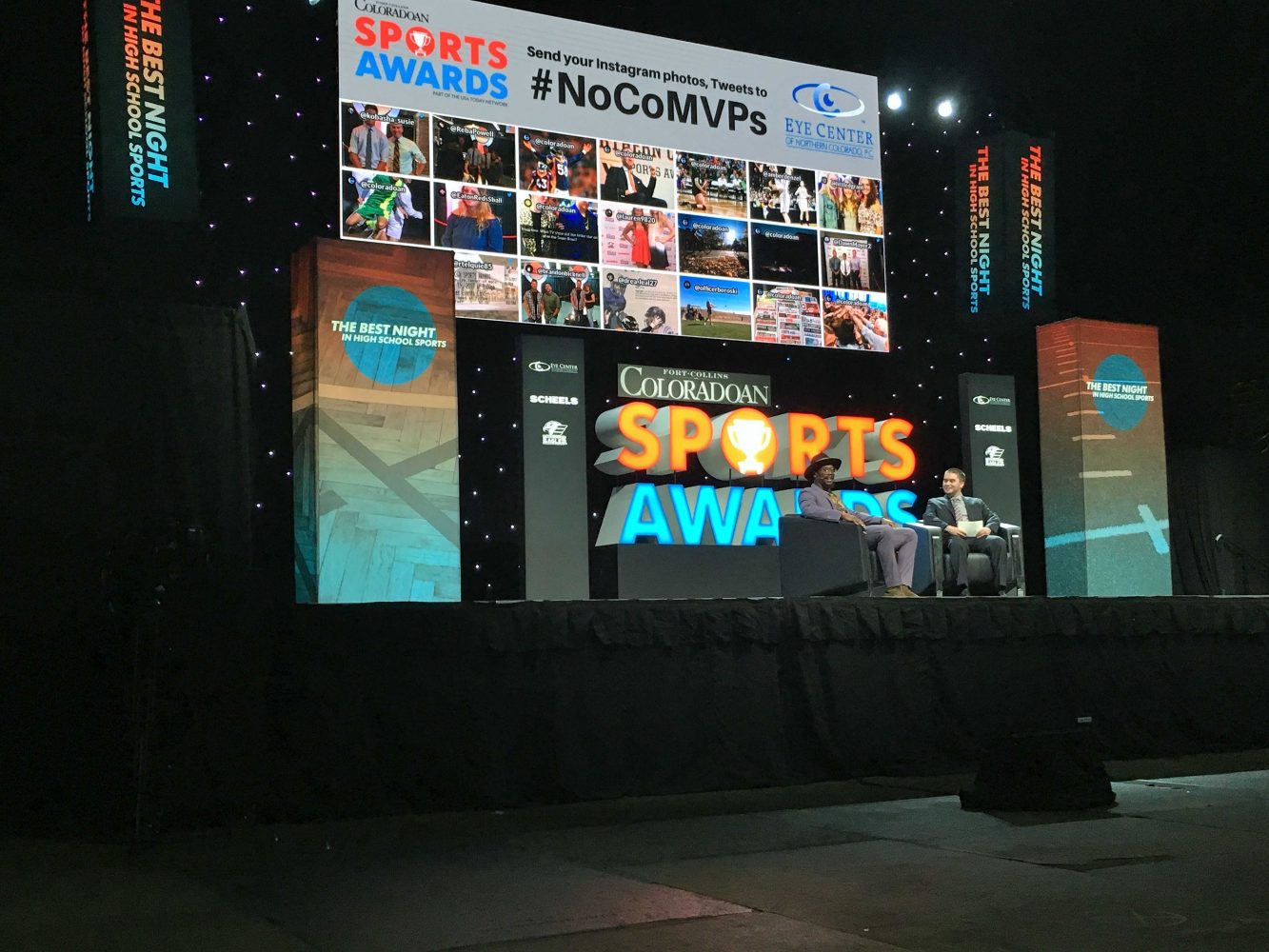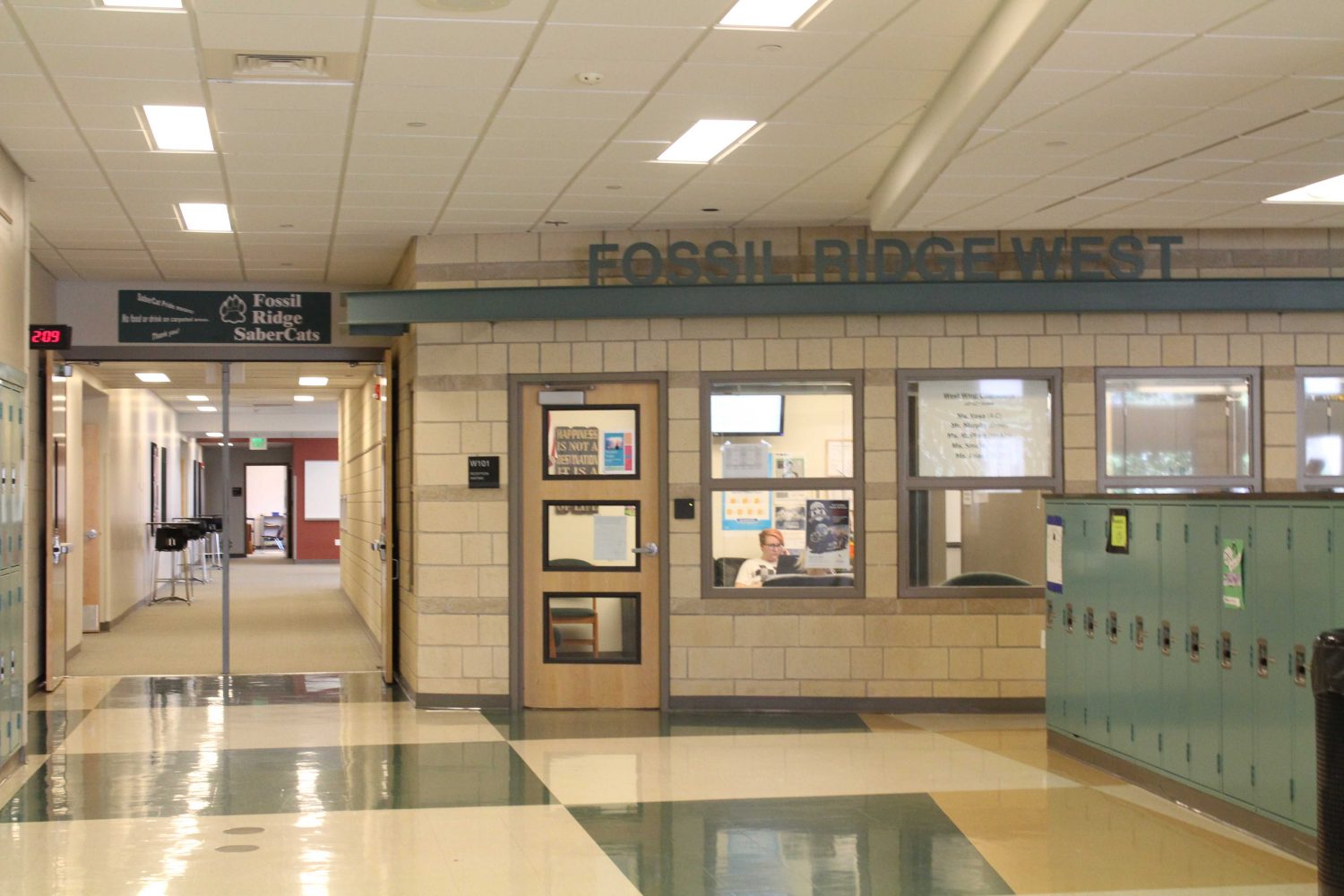On Saturday, February 11, Fossil Ridge High School’s two mock trial teams competed in the Northern Colorado regional tournament. Team B took third place among the twenty competing schools, and Michael Townsend and Jacob Trenholm won an (unofficial, though coveted) honorable mention for their hilarious performance as a “pot-loving witness and a Perry-Mason-like straight-faced attorney”, as described by advisor Karen Seeton.
The mock trial teams practice once a week for about three hours, generally at the courthouse. Each team receives the same information prior to the trial from the Colorado Bar Association, including witness statements and pictures of evidence. Teams are comprised of twelve people, including attorneys and witnesses, and are matched against another random team from their region. One side is assigned to be the plaintiff and the other the defense, and the trial is monitored by volunteer judges and attorney coaches. There is a time limit of two hours, during which there are opening statements, direct and cross examinations, and closing statements. Teams then move up or down in ranking by their point total.
Ben Walker was part of Team B, and though only the top two teams from each regional competition attend state, Walker remained positive and excited about the future of mock trial. He explained that he started because “one of my really good friends did it, and I know [Ms. Seeton] really well and she got me into it. Now, I’ve gotten some of my friends into it just because it’s so fun.” Katie Plese, another Team B member, said, “My favorite part is going to the competition and seeing how every other team decided to go about the case. Teams will read the same exact witness statements and get different information that they see as the most valuable.”
Seeton is always amazed by how professional students are when they enter a courtroom, and she is proud of the professionalism awards that Fossil has taken home in the past. These awards are voted on by the teams themselves, so they mean that the other schools also recognize how hard the Sabercats work to be prepared for their trials. She explains that the judges and jurors tend to find participants even more respectful and collected then real-life attorneys, who may or may not ever set foot in a courtroom during law school.
The most important skills that are required to be successful in mock trial involve forward thinking, memorization of facts, and good acting. Seeton recalls the tournament in which Owen Arkin, portraying a witness whose five year old daughter died after falling off a balcony, cried at the stand. His attorney, Conor Medina, gently said, “if you need a moment” to add to the realism of the trial. Though mock trial is done with competition for the rest of the school year, its competitors will continue to learn valuable skills about respect and truth, both inside the courtroom and outside of it.


